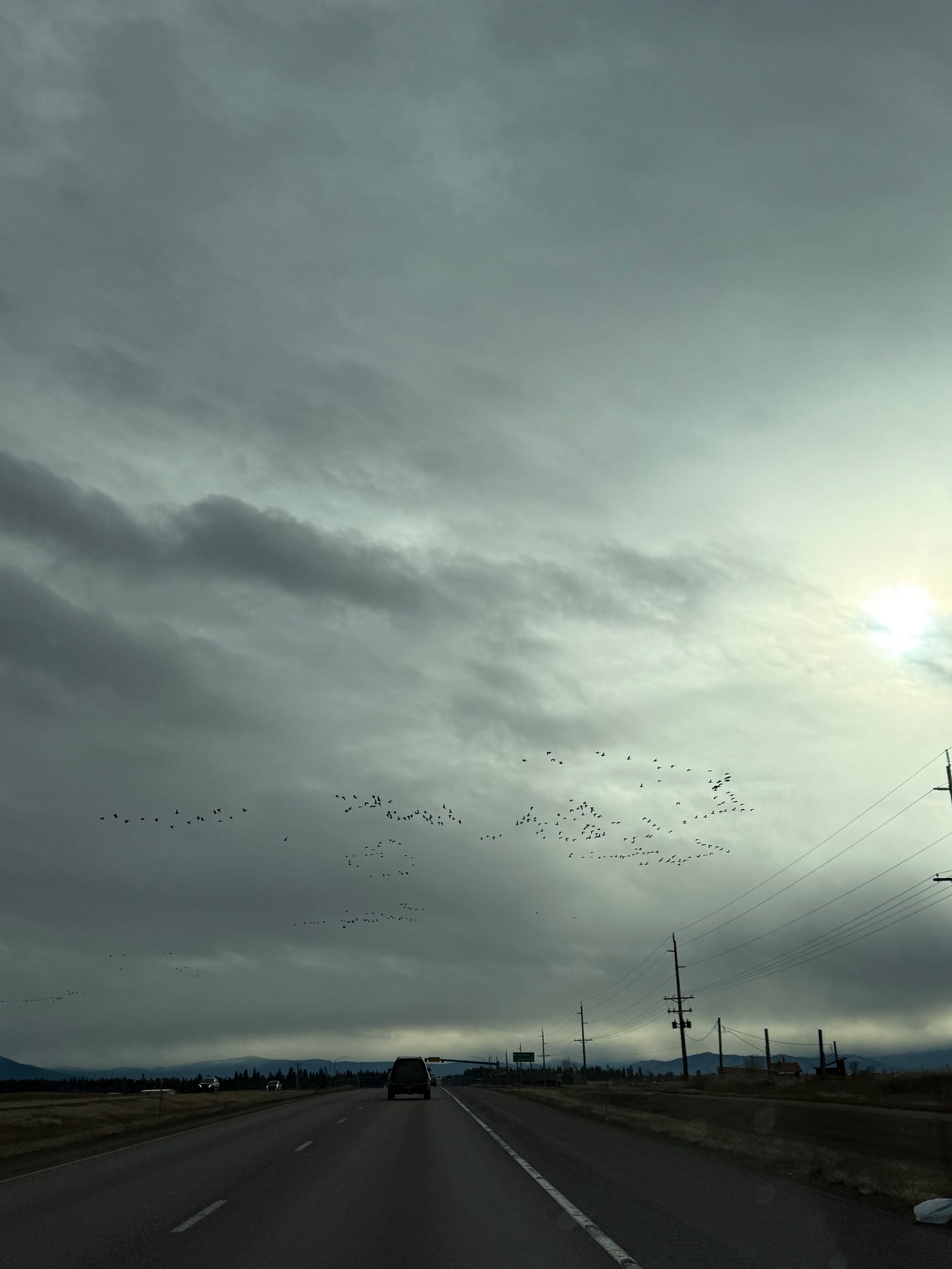I hope you had a gentle holiday season. I took December off from writing to spend time with family and friends, which gave me space to reflect on my intentions for the new year—the projects I want to be part of—and grapple with familiar themes of resolution, change, and grief.
Since last week, I have been inundated with all sorts of advertisements for “new year, new you.” There are a lot of programs being promoted and even more products being sold with the promise of becoming better, different, and new. At the same time, we see the statistics of resolutions failing, and I believe it has very little to do with a lack or abundance of willpower. For so many of us, the vision of an ideal self simply is not motivation enough to endure change and the grief that comes along with it.
I have set out on various new year resolutions and stopped doing them a few years back—mostly because I fell into the statistics of those who couldn’t muscle through. Factors within and beyond my control contributed. I grew tired and fell into the well-worn ruts. There is a gain to staying the same. While in some ways it is a “negative” gain, that is, a sort of benefit we find from malformation. Another way to think about it is like this: we don’t have to endure the grief of loss when we stay the same, even if the result of change is better.
The messaging of capitalism around the new year is, “spend money, be better,” when in reality, it’s “spend money, continue avoiding loss.”
I wonder how resolutions might be different if we approached them with a lens that understands grief, trauma, and loss. Whether it be moving numbers on the scale, lowering debt, or changing eating habits, there is a sense of loss with each of these. I lose the ability to stay comfortable, in my routine, and perhaps even remove the ways I cope with stress. I think I will feel better if I meet my goal, but eventually, the grueling journey to the destination isn’t worth it.
When the journey to change feels overwhelming, we often encounter an unwelcome companion: shame. Shame enters stage left, fed by the stories we tell ourselves or that others tell of us.
I wonder what goal setting would look like if it came from a place of radical self-compassion. If the antidote to shame is self-compassion, how might we counter the shame-driven narratives and industry marketing around being better by looking inward to actually becoming better? Shame and capitalism work in the same way. Shame is judgment rooted in comparison. Capitalism is debt rooted in image.
What if we changed the goal-setting framework? What if I want to eat healthier not to move pounds on the scale but because I love myself and want to nurture my body? What if I want to decrease my debts and change my spending to align with my values of simplicity, love, and generosity?
Yet the challenge remains the same: change requires loss. Loss is often what we fear the most. As I sit with the family members of patients, I often hear the same sentiment: “I need to be strong. I’ll let myself cry once they are gone.” This approach bypasses emotions because it rejects the grief inherent in loss.
And so it is with resolutions. Each time we choose the unsatiating salad over the satisfying burrito, each time we feel the gnawing of hunger, each tap of the credit card—these subtle value violations create the sense of losing.
Can we be sad about the positive changes we want to make? I think that is okay.
Can we be thankful for the ways we have learned to cope in the midst of grief? I think that is okay.
Can we thank those coping skills for how they protected us, how we survived, and then dismiss them from their posts to make way for new ways of being? I think that is okay.
I hope and believe we can. I think that is okay, too.
As we step into 2025, may your goals nurture the goodness already inherent in you. Instead of going to war with yourself, let’s compassionately cultivate new ways of being—ways that inspire imagination, creativity, and life. Perhaps this year, rather than forcing yourself into a “new you,” you could focus on loving the self already within. In that love and self-compassion, may you find the strength to endure loss, embrace change, and walk gently on the earth.




